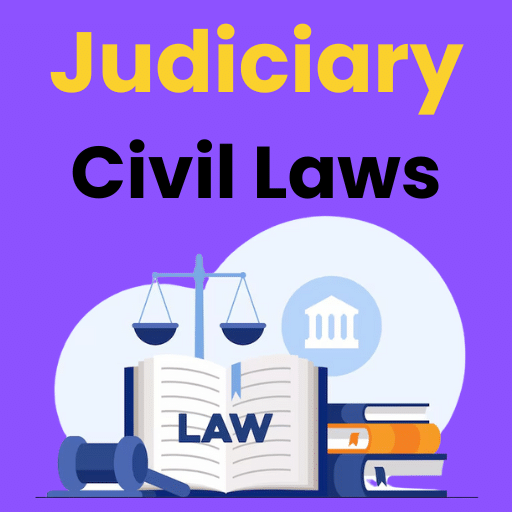Overview: Gerunds | Basic English Grammar for Competitive Exams - Bank Exams PDF Download
| Table of contents |

|
| Introduction of Gerunds |

|
| Types of Gerund |

|
| Rules Related to Gerunds |

|
| Functions of Gerund |

|
| Solved Exercises |

|
| Spotting Errors (Gerunds) |

|
Introduction of Gerunds
A gerund is a verb in its -ing form (root verb + 'ing') that functions as a noun in a sentence. Unlike present participles, which describe actions or act as adjectives, gerunds serve as subjects, objects, or complements. For example, in 'Swimming is fun,' 'swimming' is a gerund acting as the subject.
Types of Gerund
Depending on their role in a sentence, they can be classified into different types. Here are the main types with examples:
1. Gerunds as Subjects
These gerunds act as the subject of the sentence and represent an activity or action.
Examples:
Swimming is my favorite sport.
Cooking takes time and patience.
2. Gerunds as Direct Objects
In this case, the gerund functions as the direct object of a verb, indicating what the subject is doing.
Examples:
She enjoys reading.
He started learning Spanish last year.
3. Possessive Gerunds
These gerunds are preceded by a possessive noun or pronoun, showing ownership of the action.
Examples:
I don’t mind your singing.
She’s proud of his cooking.
4. Gerunds After Prepositions
Gerunds often follow prepositions and show the relationship between the action and other elements in the sentence.
Examples:
He’s good at solving puzzles.
She’s interested in learning about history.
5. Gerunds as Object Complements
Sometimes, a gerund complements the object by providing additional information about it.
Examples:
She considered him a great teacher.
I find the movie entertaining.
(Note: The examples above are not true gerunds as object complements; this category often gets confused with participles or noun complements.)
6. Gerunds in Compound Nouns
Gerunds can be part of compound nouns, where they combine with other words to form a noun phrase.
Examples:
The swimming pool is open all year.
I bought a book on cooking techniques.
7. Gerunds in Infinitive Phrases
Gerunds may appear within infinitive phrases, often used to express purpose or intent.
Examples:
She decided to go swimming in the afternoon.
He plans to start learning a new language.
Rules Related to Gerunds
- Gerunds act as nouns: Gerunds are formed from verbs but they act as nouns in a sentence. They can be used as subjects, objects, or complements in a sentence.
- Gerunds are always in the present participle form: Gerunds are always formed by adding "-ing" to the base form of a verb. For example, "Swimming is good exercise."
- Gerunds can take objects: Like nouns, gerunds can take objects. For example, "She enjoys cooking dinner for her family."
- Gerunds can be modified by adverbs: Adverbs can modify gerunds in a sentence. For example, "He speaks English fluently, impressing his clients."
- Gerunds can be used after prepositions: Gerunds can be used after prepositions such as "by," "with," "for," and "in." For example, "She succeeded by working hard."
- Gerunds can be used in the place of infinitives: Gerunds can be used in the same situations as infinitives, such as after certain verbs like "enjoy," "like," and "hate." For example, "I enjoy skiing in the winter."
Remember that gerunds should not be confused with present participles, which are verb forms that function as adjectives or describe ongoing actions.
Functions of Gerund
- Subject of a sentence: Gerunds can be used as the subject of a sentence, such as "Swimming is my favorite sport." Here, "swimming" is the subject of the sentence.
- Object of a verb: Gerunds can also be used as the object of a verb, such as "I enjoy swimming." Here, "swimming" is the object of the verb "enjoy."
- Object of a preposition: Gerunds can also function as the object of a preposition, such as "I am interested in swimming." Here, "swimming" is the object of the preposition "in."
- Subject complement: Gerunds can also function as a subject complement, which means that they follow a linking verb and rename the subject of the sentence. For example, "My favorite activity is swimming." Here, "swimming" renames the subject "activity."
 |
Download the notes
Overview: Gerunds
|
Download as PDF |
Solved Exercises
Exercise 1: Identifying gerunds
In the following sentences, identify the gerunds and explain their function in the sentence.
Reading helps to expand your vocabulary.
Gerund: Reading; Function: Subject of the sentence.
In this sentence, "reading" is the subject, and it functions as a noun. It is formed from the verb "read" and ends in -ing, making it a gerund.
He enjoys playing soccer on the weekends.
Gerund: playing; Function: Object of the verb "enjoys."
"Playing" is the object of the verb "enjoys" and functions as a noun. It is formed from the verb "play" and ends in -ing, making it a gerund.
Eating too much junk food can lead to health problems.
Gerund: Eating; Function: Subject of the sentence.
In this sentence, "eating" is the subject and functions as a noun. It is formed from the verb "eat" and ends in -ing, making it a gerund.
I don't like driving in heavy traffic.
Gerund: driving; Function: Object of the verb "like."
"Driving" is the object of the verb "like" and functions as a noun. It is formed from the verb "drive" and ends in -ing, making it a gerund.
She suggested going to the beach for the day.
Gerund: going; Function: Object of the verb "suggested."
"Going" is the object of the verb "suggested" and functions as a noun. It is formed from the verb "go" and ends in -ing, making it a gerund.
Exercise 2: Complete the following sentences with appropriate gerunds:
I can't stand ________ (wait) in long lines.
I can't stand waiting in long lines.
She's afraid of ________ (fly) in airplanes.
She's afraid of flying in airplanes.
He's considering ________ (move) to a new city for work.
He's considering moving to a new city for work.
They apologized for ________ (be) late to the meeting.
They apologized for being late to the meeting.
She's really good at ________ (cook) Italian food.
She's really good at cooking Italian food.
Spotting Errors (Gerunds)
1. Incorrect: I appreciate him helping me with my homework.
Correct: I appreciate his helping me with my homework.
Gerunds (-ing forms) act as nouns and should be preceded by a possessive form (his, her, their, etc.) rather than an object pronoun (him, her, them, etc.).
2. Incorrect: She denied to take the money from the cashier.
Correct: She denied taking the money from the cashier.
The verb "deny" should be followed by a gerund, not an infinitive verb form (to + verb).
3. Incorrect: The manager suggested to implement a new policy.
Correct: The manager suggested implementing a new policy.
The verb "suggest" should be followed by a gerund, not an infinitive verb form (to + verb).
4. Incorrect: They insisted on to leave immediately.
Correct: They insisted on leaving immediately.
The preposition "on" should be followed by a gerund, not an infinitive verb form (to + verb).
5. Incorrect: I can't stand she acting like she knows everything.
Correct: I can't stand her acting like she knows everything.
Gerunds (-ing forms) act as nouns and should be preceded by a possessive form (his, her, their, etc.) rather than an object pronoun (him, her, them, etc.).
|
40 videos|86 docs|62 tests
|
FAQs on Overview: Gerunds - Basic English Grammar for Competitive Exams - Bank Exams
| 1. What is a gerund and how is it formed? |  |
| 2. What are the different types of gerunds? |  |
| 3. What are the rules related to the use of gerunds in sentences? |  |
| 4. What functions do gerunds serve in a sentence? |  |
| 5. How can I practice identifying errors related to gerunds in sentences? |  |































